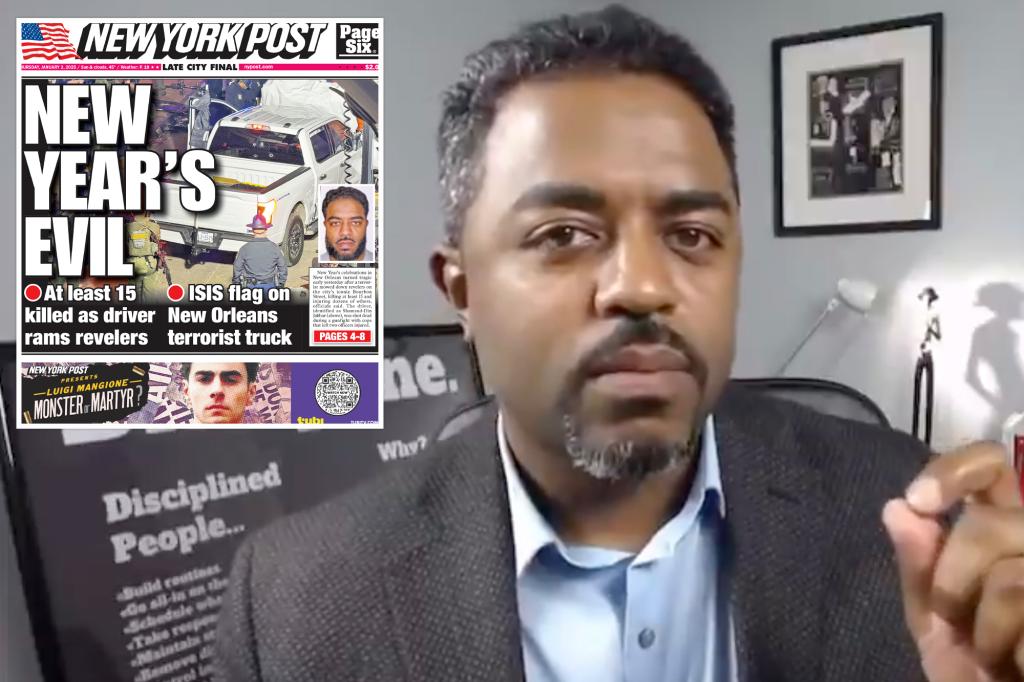Shamsud-Din Jabbar, a 42-year-old US Army veteran, perpetrated a horrific act of violence on New Year’s Day 2024, driving a rented Ford F-150 EV into a crowd celebrating on Bourbon Street in New Orleans. The attack, which occurred around 3:15 a.m., resulted in the deaths of 14 people and injured at least 35 others. Following the vehicular assault, Jabbar exited the truck and engaged in a shootout with police officers, wounding two before being fatally shot. The incident has sent shockwaves through the community and raised questions about Jabbar’s motives and background.
Prior to the attack, Jabbar resided in a dilapidated trailer in a Muslim neighborhood of North Houston. He had seemingly undergone a period of personal turmoil and radicalization. His ex-wife’s husband, Dwayne Marsh, reported Jabbar’s increasingly erratic behavior, leading to the couple restricting his access to their two daughters. Jabbar’s brother, Abdur Jabbar, confirmed his brother’s conversion to Islam at a young age, after being raised Christian, but attributed the attack to radicalization rather than religious conviction. This perspective was echoed by Imam Fahmee Al-Uqdah, who had previously interacted with Jabbar.
Al-Uqdah recounted Jabbar’s visit to Beaumont, Texas, earlier in 2023 to care for his ailing father, who was recovering from a suspected stroke. The imam remembered Jabbar’s compassionate nature and scholarly demeanor, expressing profound shock at the news of his involvement in the attack. He emphasized the family’s plea to distinguish Jabbar’s actions from the teachings of Islam, condemning the attack and expressing sorrow for the victims. This sentiment underscores the complex and often tragic intersection of personal struggles, extremist ideologies, and acts of violence.
The attack took a further disturbing turn with the discovery of an ISIS flag attached to Jabbar’s vehicle and videos posted on his Facebook page. In these videos, he reportedly pledged allegiance to ISIS and expressed intentions to harm his family. Law enforcement officials believe these recordings may have been made during Jabbar’s drive from Texas to New Orleans, suggesting a premeditated act of terror. The discovery of these materials points towards a radicalized mindset and raises concerns about the influence of extremist propaganda.
Following the attack, the FBI launched a comprehensive investigation, conducting hundreds of witness interviews and reviewing Jabbar’s social media activity. Their findings confirmed that Jabbar acted alone, ruling out any wider conspiracy or involvement of other individuals. This conclusion, while providing some closure, still leaves unanswered questions about the specific factors that drove Jabbar to commit such a horrific act. The investigation underscores the challenges in understanding and preventing acts of lone-wolf terrorism.
The New Orleans attack serves as a stark reminder of the devastating consequences of extremism and the ongoing need for vigilance. While the investigation has concluded that Jabbar acted alone, the incident highlights the vulnerability of public spaces and the potential for individuals to become radicalized. The tragedy also underscores the importance of community support and mental health resources in addressing the underlying factors that can contribute to violent extremism. The contrasting images of Jabbar as a caring son and a perpetrator of violence demonstrate the complexities of human behavior and the challenges in identifying and intervening in situations that pose a threat to public safety.

